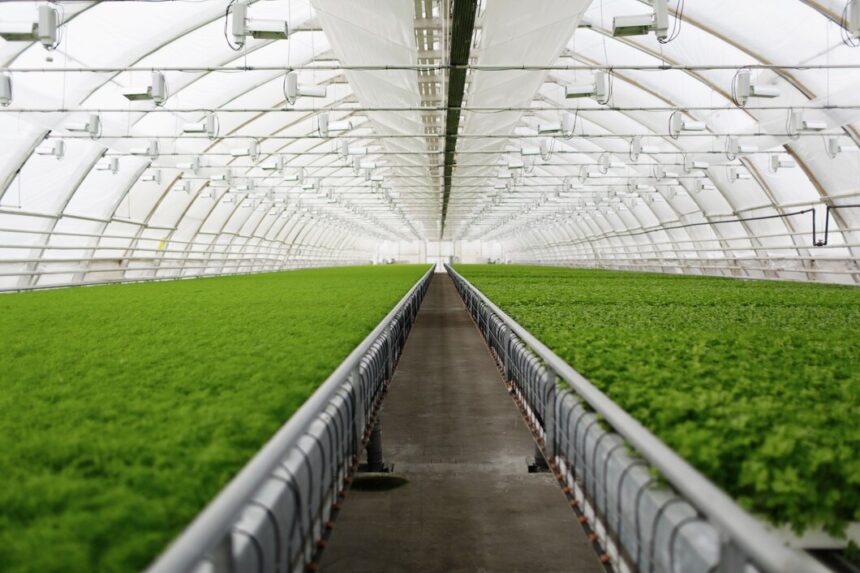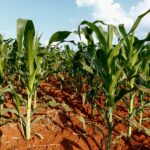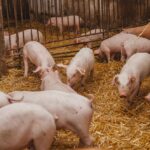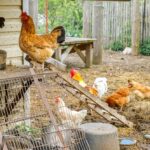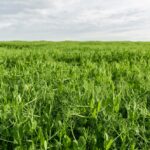South Africa, with its rich agricultural heritage, is witnessing a transformative era driven by technological innovation. From precision farming to smart irrigation, technology is reshaping traditional agricultural practices, bringing efficiency, sustainability, and increased yields to the forefront. This article explores the various ways technology is revolutionizing farming in South Africa.
1. Precision Farming: Navigating Fields with Accuracy
Precision farming leverages technologies such as GPS, sensors, and data analytics to optimize field-level management with regard to crop farming. Farmers can precisely control seeding, monitor crop health, and manage resources efficiently. This technology enhances productivity while minimizing environmental impact.
2. Drones and Satellite Imaging: Aerial Insights for Smart Agriculture
Drones equipped with cameras and sensors, along with satellite imaging, provide farmers with valuable insights into crop health, soil conditions, and irrigation needs. This aerial perspective enables early detection of issues, allowing for timely intervention and resource allocation.
3. Smart Irrigation Systems: Water Conservation in Focus
In a water-scarce region like South Africa, smart irrigation systems play a crucial role in optimizing water usage. These systems use data-driven insights, weather forecasts, and soil moisture monitoring to deliver precise amounts of water, reducing waste and ensuring crops receive the right amount of hydration.
4. Agricultural Apps: Accessible Information at Your Fingertips
The advent of agricultural apps has empowered South African farmers with accessible information on weather patterns, market prices, and best farming practices. These apps enable farmers to make informed decisions, manage resources efficiently, and stay connected with the broader agricultural community.
5. Climate-Smart Agriculture: Adapting to Changing Conditions
Climate-smart agriculture integrates technology to adapt farming practices to changing climatic conditions. This includes the use of drought-resistant crops, improved forecasting tools, and innovative farming techniques that enhance resilience in the face of climate change challenges.
6. Vertical Farming: Optimizing Space for Increased Yields
Urbanization and limited arable land have spurred interest in vertical farming. Utilizing technology like hydroponics and controlled environment agriculture, vertical farms maximize space efficiency and enable year-round crop production. This approach is especially relevant in urban areas, promoting local and sustainable food production.
7. AgTech Startups: Pioneering Solutions for Agriculture
South Africa has seen a rise in AgTech startups offering innovative solutions to agricultural challenges. These startups focus on areas such as farm management software, precision agriculture tools, and supply chain optimization. The entrepreneurial spirit within the agricultural sector is driving the adoption of cutting-edge technologies.
8. Livestock Monitoring Technology: Ensuring Animal Welfare
Technology is not limited to crop farming; it extends to livestock management as well. Livestock monitoring technologies, including GPS-enabled collars and health tracking sensors, provide real-time data on animal behavior, health, and location. This enhances overall farm management, ensuring the well-being of livestock.
9. Blockchain in Agriculture: Transparent and Traceable Supply Chains
Blockchain technology is making inroads into agriculture by creating transparent and traceable supply chains. This is particularly valuable in the export-oriented South African agricultural sector, where consumers and stakeholders demand visibility into the origin and quality of products.
10. Robotics and Automation: Streamlining Labor-Intensive Tasks
The use of robotics and automation is streamlining labor-intensive tasks on farms. From autonomous tractors for plowing fields to robotic milking systems, these technologies not only increase efficiency but also address labor shortages in the agriculture sector.
11. Biotechnology: Enhancing Crop Traits for Improved Yields
Biotechnology plays a role in enhancing crop traits for improved yields and resilience. Genetically modified crops, such as drought-resistant varieties, help farmers mitigate the impact of changing weather patterns and produce more robust harvests.
12. Data Analytics for Decision-Making: Turning Data into Insights
The abundance of data generated on modern farms is turned into actionable insights through data analytics. Farmers can analyze trends, predict outcomes, and make informed decisions regarding planting, harvesting, and resource allocation. Data-driven agriculture is at the forefront of the technological revolution in South African farming.
South African agriculture is undergoing a renaissance fueled by technological innovation. From the vast fields of crops to the careful management of livestock, technology is enhancing efficiency, sustainability, and productivity. As South African farmers embrace these advancements, the agricultural landscape is not only evolving but also becoming a beacon of inspiration for a more sustainable and tech-infused future. The fusion of tradition and innovation is shaping a resilient and productive agricultural sector that holds promise for the nation’s food security and economic growth.
Join 'Farmers Mag' WhatsApp Channel
Get the latest Farming news and tips delivered straight to your WhatsApp
CLICK HERE TO JOIN
